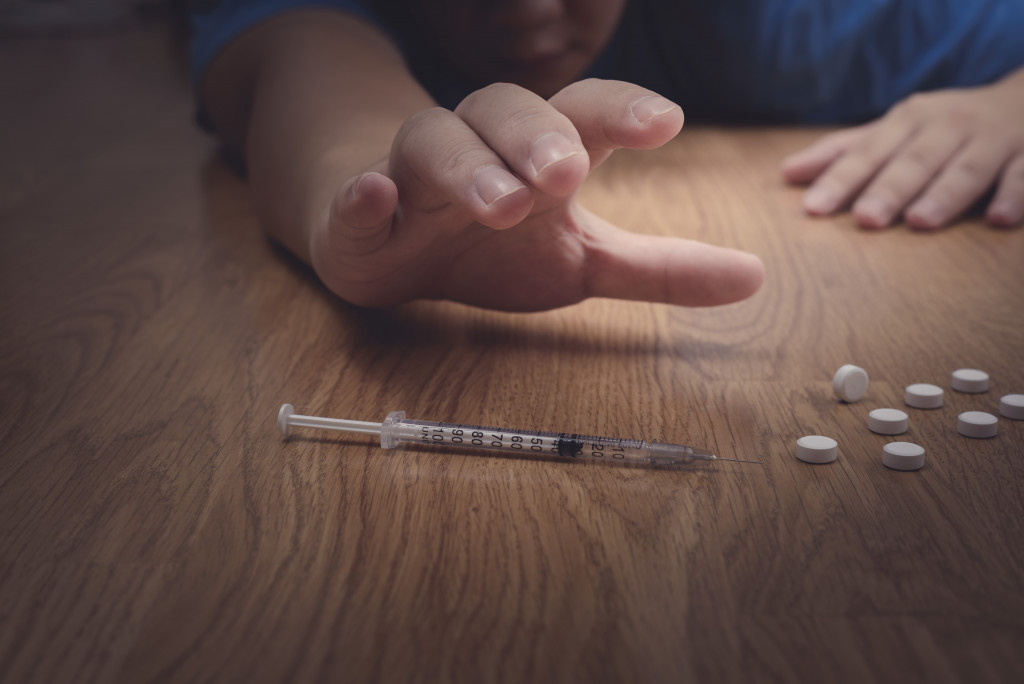- Substance abuse is a serious issue that can have devastating consequences on individuals.
- Accepting the reality of an addiction is the first step to overcoming it; however, many people face obstacles due to stigma and lack of knowledge.
- Motivation and support from family, friends, counselors, and rehab centers are vital for recovering from substance abuse.
- Relapse is part of the recovery process and should be seen as an opportunity for reflection and identifying triggers.
- Professional help should be sought to get back on track with sobriety goals and create strategies for avoiding relapse in the future.
Drug addiction is a severe issue that can devastate individuals and entire communities. Substance abuse is a complicated issue involving physical dependence, mental addiction, and social obstacles. According to the Centers for Disease Control (CDC), more than 100,000 people died from drug overdoses in 2021 alone. The 2019 National Survey on Drug Use and Health revealed that more than 10 million people aged 12 or older misused opioids in the past year alone.
Substance abuse often leads to physical and psychological dependence on drugs and alcohol. People may start using them to cope with stress or numb emotional pain, but eventually, they must use them to feel normal. This can lead to extreme cravings, making it difficult for users to quit without help. Addiction also disrupts neural pathways in the brain, making it harder for abusers to make positive decisions and maintain healthy relationships.
Breaking free from an addiction is an incredibly challenging journey – even with professional help. It often requires drastic lifestyle changes that many abusers are not ready or willing to make. Taking it step-by-step will be vital if you want to recover from drug addiction.
The First Battle: Acceptance
Unfortunately, not many people may be aware that they are seeking a solution to addiction. Accepting the reality of your substance abuse is often the first step in conquering it. Acknowledging the scope and severity of your drug abuse will be necessary for making an informed decision about getting help.
Unfortunately, acceptance of the problem is not as easy as it sounds. The CDC estimates that only 10 percent of those who need treatment receive it. There are many reasons why someone may not accept they have an addiction, such as fear of judgment, stigma, and a lack of knowledge about treatment options.
To recover from drug addiction, you must first be honest about its existence. Acknowledging your dependence is the first step to overcoming it.
The Second Battle: Motivation
Motivation is integral for anyone seeking recovery from substance abuse, as it gives you the determination to stay on track and achieve your goals. Finding the right inspiration can be difficult, but some strategies may help.
For example, creating a list of reasons you want to overcome your addiction can help motivate you during tough times. Your list might include long-term benefits such as improved physical health and better career prospects or short-term rewards like increased self-confidence or quality time with loved ones. Visualizing these outcomes can give you the strength and will to carry on throughout treatment and recovery.
Finally, remember that it is crucial to have patience. Recovery from addiction takes time and effort, and learning healthy coping mechanisms can be extended. However, the rewards of staying clean will significantly outweigh any challenges you face along the way. With resilience and perseverance, you can win over substance abuse once and for all.
The Allies: Support Network

No one can overcome addiction alone. Building a solid support network is an essential part of the recovery journey. Here are some of the people you might need for support
Family
No one knows you better than your family. Having their support can help you stay on track and remind you of your goals when times are tough.
Friends
Your friends who don’t use drugs can be invaluable sources of encouragement, especially if they understand the struggles of addiction. They can provide a safe space to discuss complex issues without fear of judgment or criticism.
Counselors
Professional counselors can offer essential guidance while helping you work through traumatic experiences and build healthier coping mechanisms. With their assistance, it is possible to address underlying psychological issues that may have caused the addiction in the first place.
Rehab Center
The environment you are in might be the most significant factor in your recovery. Drug recovery centers provide a safe and secure environment where you can focus solely on your recovery. They also offer an array of therapies, activities, and support groups to help you on your journey.
By enlisting the aid of these allies, you can have a greater chance of overcoming addiction and achieving long-term sobriety. With determination, motivation, and support, it is possible to win over substance abuse once and for all.
The Main Enemy: Relapse

The personal battle of overcoming an addiction can be physically and emotionally exhausting. Many abusers relapse during their recovery journey, but it doesn’t mean they have failed. It is simply part of the process and is to be expected at times.
If you find yourself in a relapse, don’t be too hard on yourself. Take this as an opportunity to reflect and identify the triggers that led to your relapse. This will help you create strategies for avoiding them in the future. It is also essential to seek professional help to get back on track with your recovery goals.
Final Thoughts
Drug addiction is a severe issue that can affect individuals and communities. However, it is possible to overcome substance abuse and win over the addiction with the right motivation and support. If you or someone you know needs help overcoming an addiction, remember that you are not alone in this fight. There are many resources available to help you on your journey of recovery.
